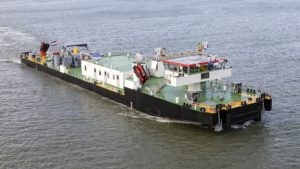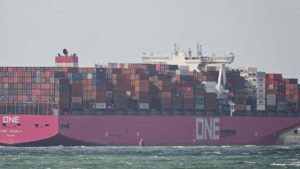MCS says climate solutions must include ban on bottom trawling in MPA

The Marine Conservation Society (MCS) has released its Marine unProtected Areas report which found that bottom trawling is taking place in a worrying 98% of the UK’s offshore Marine Protected Areas (MPAs) designed to protect the seabed. As a result of the report, and the year-long research which informed it, the MCS is calling for a ban on bottom trawling in these protected areas.
Bottom trawling can damage the seabed, kill animals and plants, and release carbon from the seabed which can enter our atmosphere and contribute to climate change.
“While bottom trawling is still allowed we will continue to release more carbon from the seafloor and prevent complex carbon storing habitats from recovering. In order to battle the climate emergency there has to be limits on where fishing of this kind can take place,” says Dr Jean-Luc Solandt, Principal Specialist in MPAs. “Without a ban on this form of fishing, these areas of our seas simply aren’t recovering and we’re missing a crucial opportunity to combat climate change and ensure there are, indeed, plenty more fish in the sea.”
Out of all the UK’s MPAs, just 5% currently ban bottom trawling (and only in inshore waters less than 12 miles from our coasts). Continuing to allow this fishing method in protected areas is equivalent to bulldozing a national park on land, states the report.
The research by the MCS found that fishing activity inside protected areas continues unabated:
- All but one of the offshore MPAs designated to protect the seabed experienced bottom trawling and dredging between 2015 and 2018
- Areas of seabed later designated as MPAs in 2019, experienced the highest rates of fishing between 2015 and 18. There are no fishing restrictions inside these MPAs so nothing is in place to stop this level of fishing from continuing
- Bottom trawl and dredge vessels spent at least 89,894 hours fishing the seabed inside MPAs between 2015 and 2018
Laying out what needs to be done, the report suggests that by completely banning bottom trawling in MPAs designed to protect the seabed, it is possible for our seas to recover.
Within five years of protection from bottom trawling, animals in three UK and Isle of Man MPAs were found to be larger and more diverse. And, when areas of sea around the world were fully protected, biodiversity was found to increase by an average of 21%.
With the powers provided by the new Fisheries Act 2020, the MCS says UK Governments can act more independently to recover our seas and combat climate change – starting with the banning of bottom trawling in these vulnerable areas.
The MCS report states that banning bottom trawling will:
- Conserve seabed species and habitats
- Reduce carbon emissions
- Sustain our food supply
- Protect jobs in the fishing industry
- Save money
Read the full report here.










